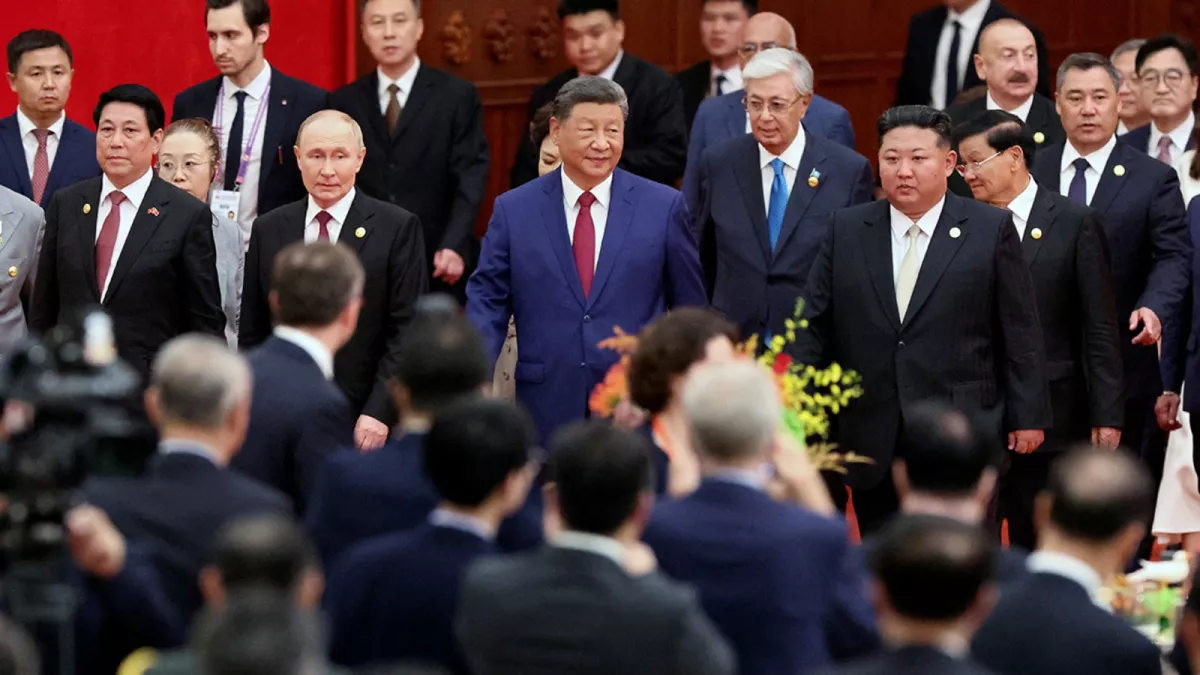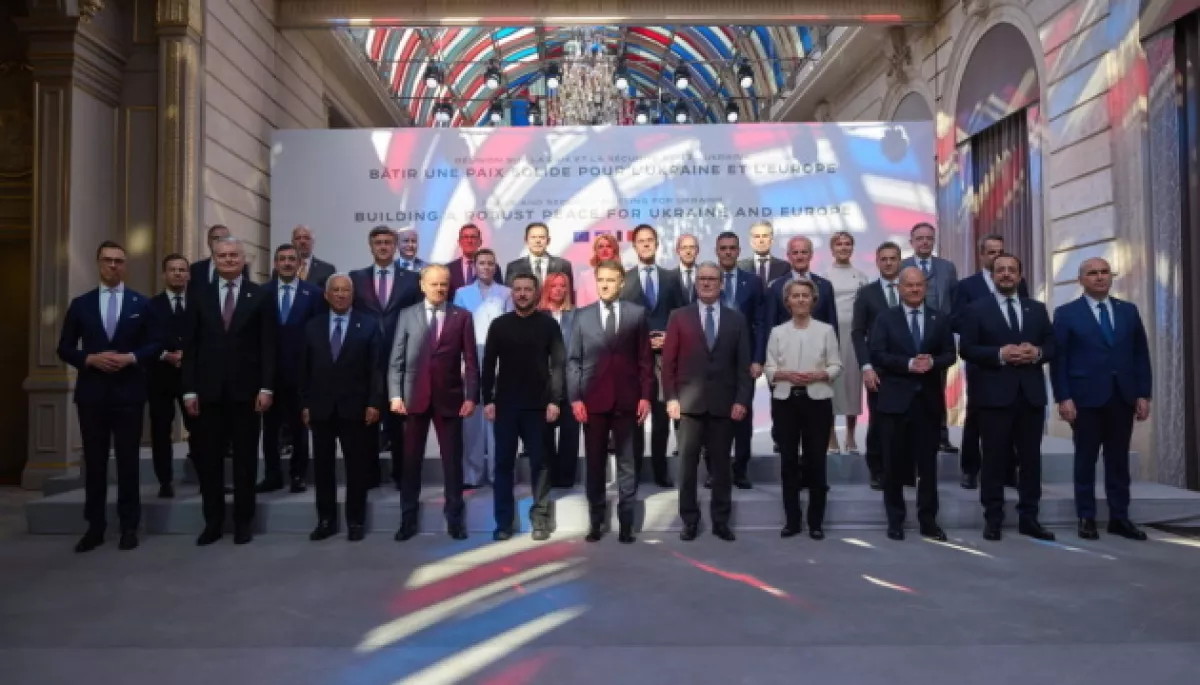Beijing & Paris: Two visions of global order United only by Washington’s absence
Two sharply contrasting visions of the global order were on display this week. In Beijing, the twenty-fifth meeting of the Shanghai Cooperation Organization, followed by a massive military parade, showcased a striking show of unity among the participating countries. It featured the first joint public appearance of Chinese President Xi Jinping, Russian President Vladimir Putin, and North Korean leader Kim Jong Un—symbolizing “a new international order centered around Beijing and Moscow.”
Meanwhile, in Paris, some thirty democratic leaders of a self-selected “coalition of the willing” gathered to reaffirm support for Ukraine and craft security guarantees to protect Kyiv’s sovereignty. Participants included European nations alongside Japan, Australia, and Canada.
An article by the Atlantic Council noted a common thread in both events: “the United States was physically absent but very much present in what motivated each gathering,” according to the author.
"The meeting in Beijing was organized with the intention of replacing the global system that the United States has grown less interested in leading, while the one in Paris aimed to perpetuate that system, with less Washington and more Europe," the report observes.
Unsurprisingly, US President Donald Trump wasn’t in Beijing. On Truth Social, he wrote: “give my warmest regards to Vladimir Putin, and Kim Jong Un, as you conspire against The United States of America.” Trump added from the Oval Office, “They were hoping I was watching—and I was watching.”
“What’s Mr. Trump’s strategy?” the author asks. Citing a recent article by the Wall Street Journal, he notes that “America’s adversaries are united, while Mr. Trump hits US allies with a tariff barrage.”
In Paris, European leaders showed readiness to act without waiting for Washington, while acknowledging that any credible security guarantee still needs US involvement. Their recent White House meeting with Trump and Ukrainian President Volodymyr Zelenskyy reinforced two points: growing European strategic coordination and the belief that “there is strength in numbers as they try to corral a wavering White House.”
As the article explains, both summits were essentially responses to Trump. “Beijing was testing the readiness of non-Western powers to coalesce and fill whatever global leadership vacuum the US president wishes to leave. By contrast, Paris was an anxious signal that others must carry greater burdens if Washington is unwilling to do so.”
“The juxtaposition of the two meetings lays bare our global inflection point: Competing orders are crystallizing more sharply, while the United States—once the indispensable convener—considers its options,” the Atlantic Council states.
The article concludes that the key question now is not only which vision will prevail, but “what role the United States will play in determining that outcome—and the global future.”
By Nazrin Sadigova










